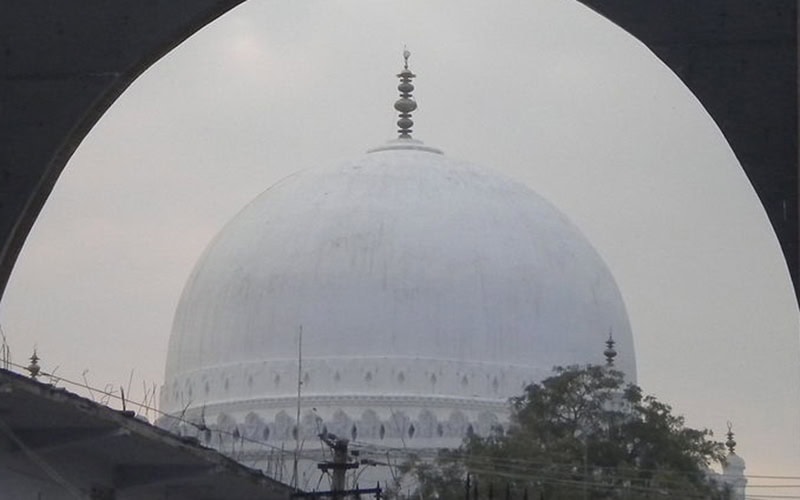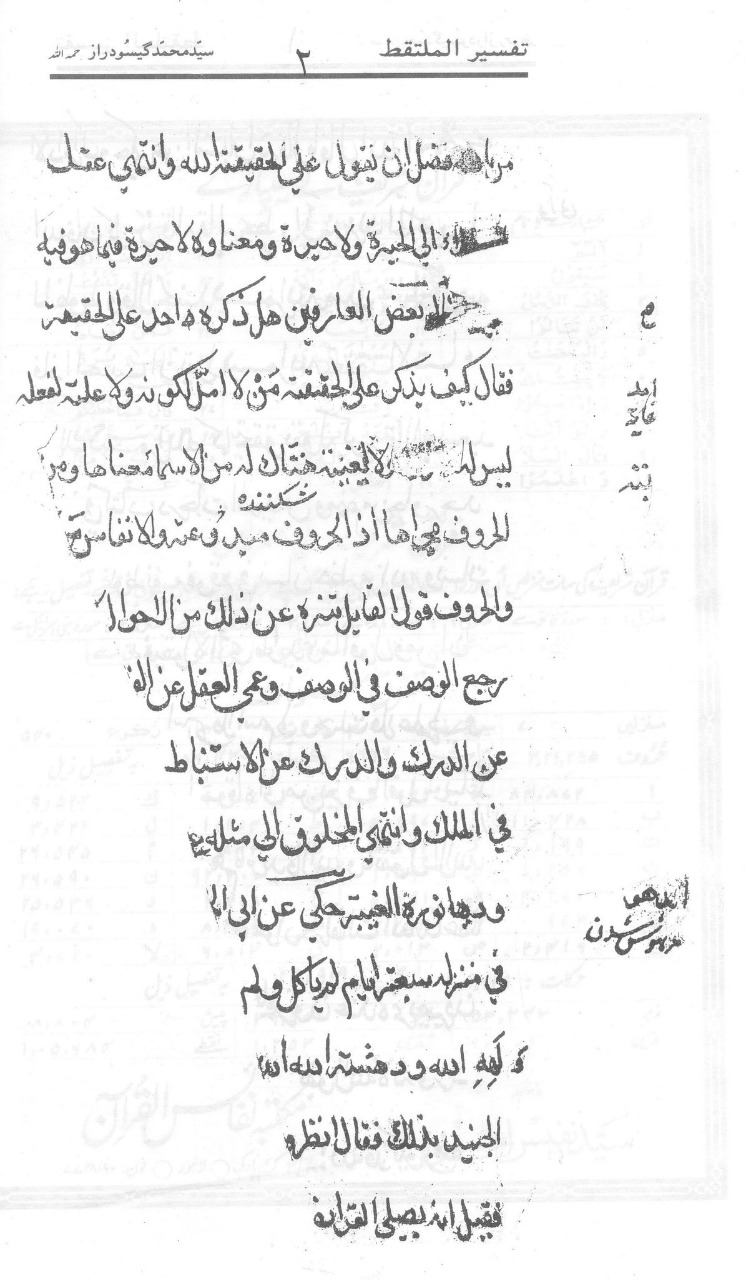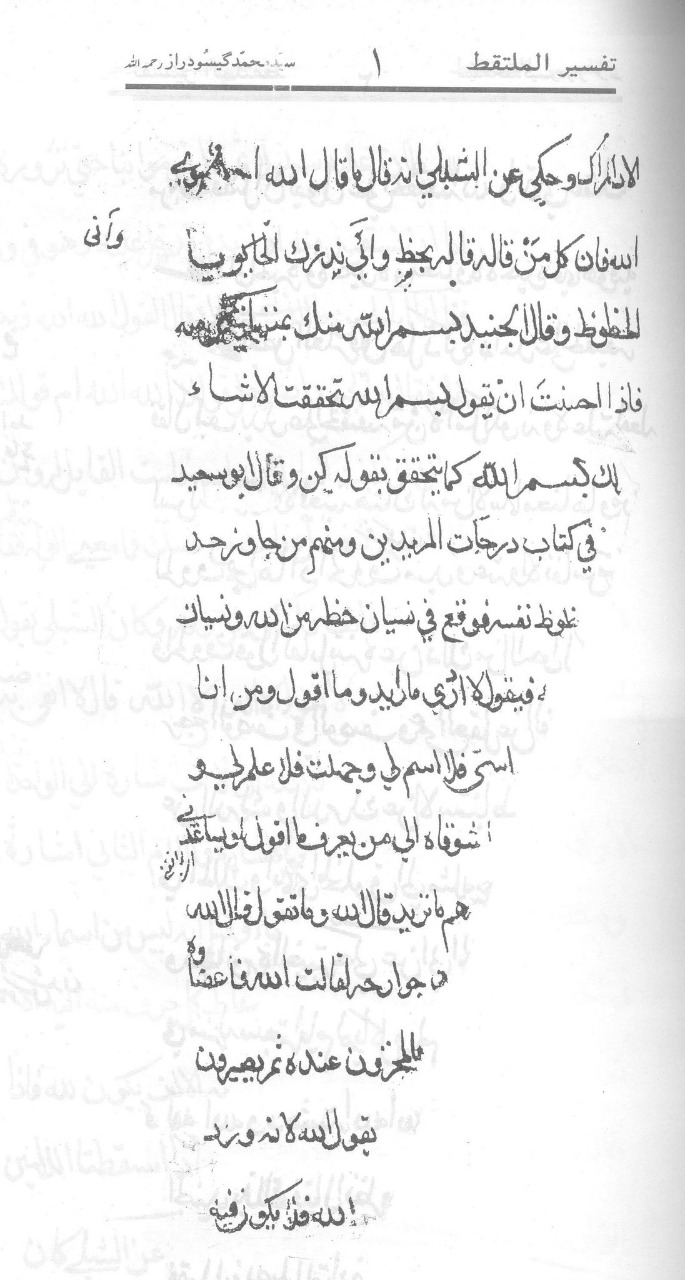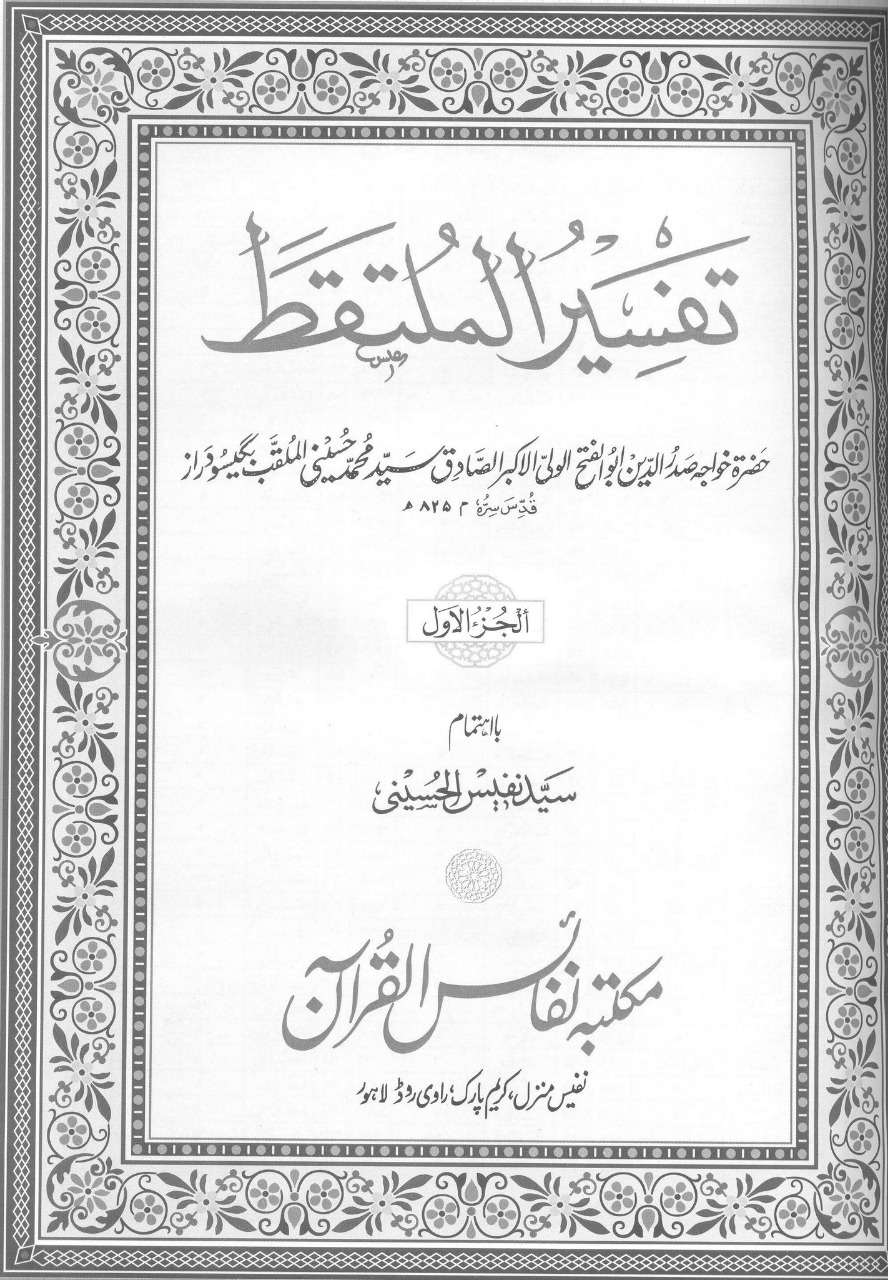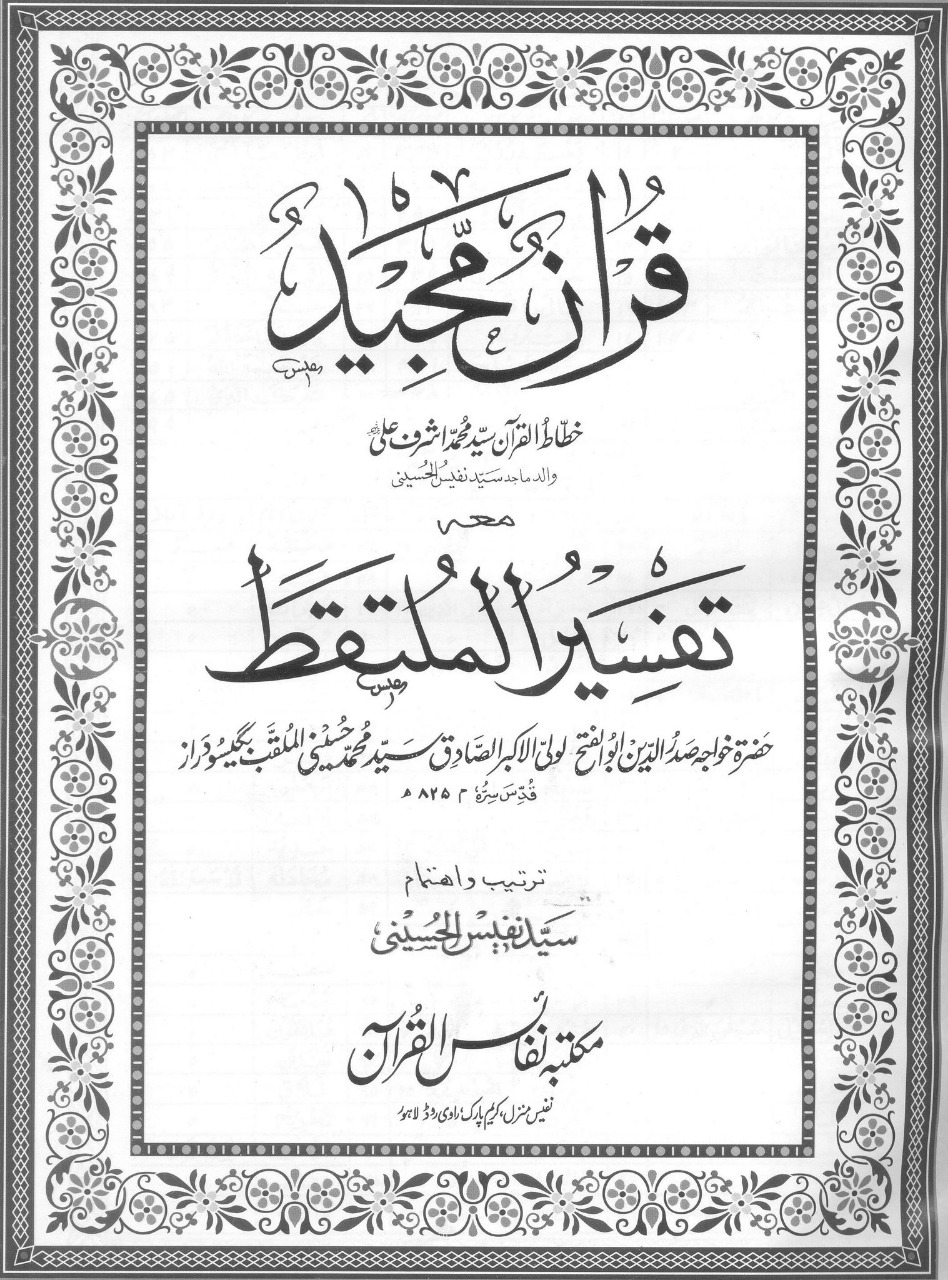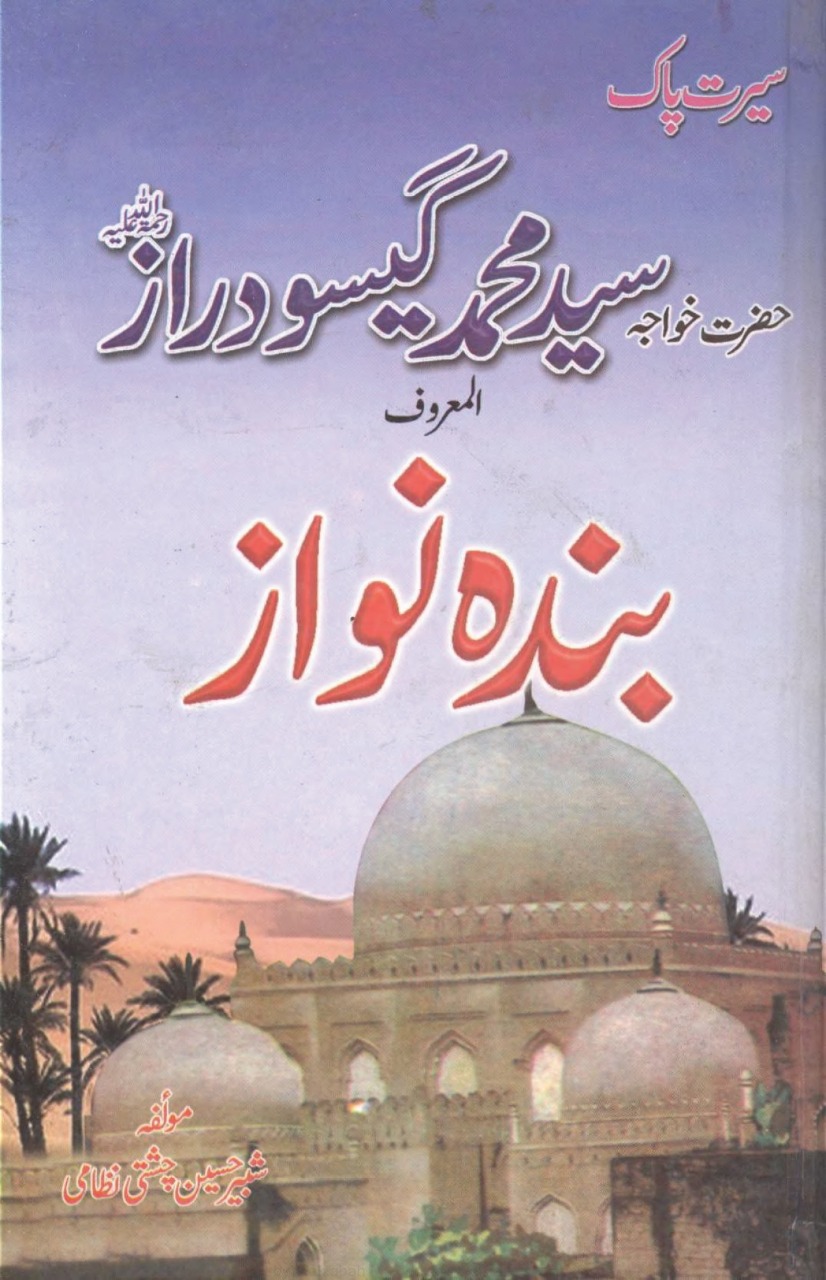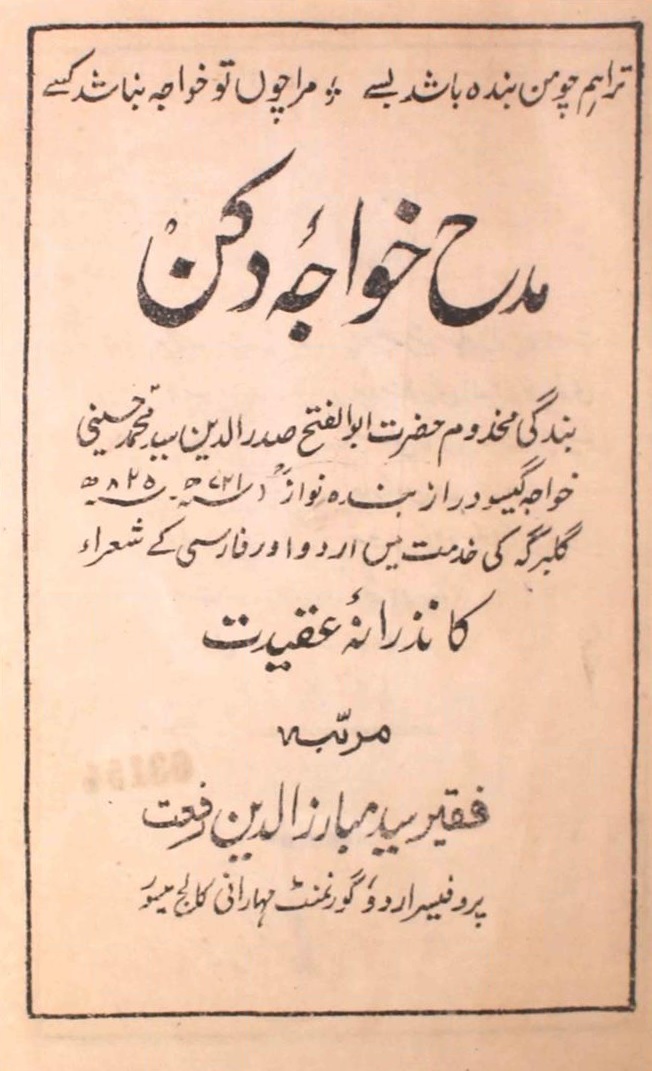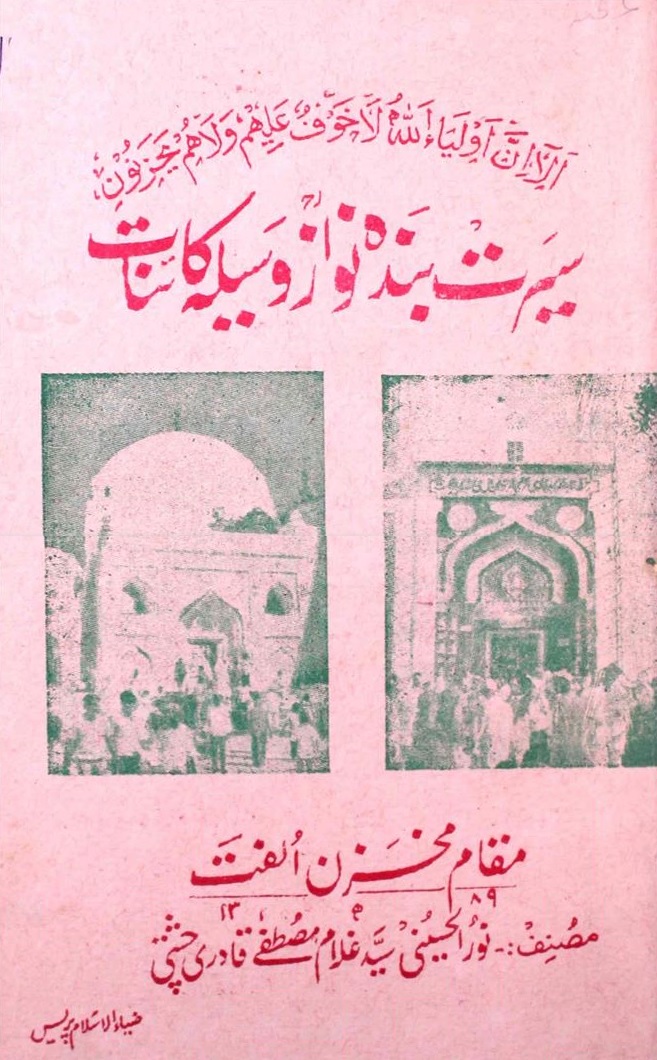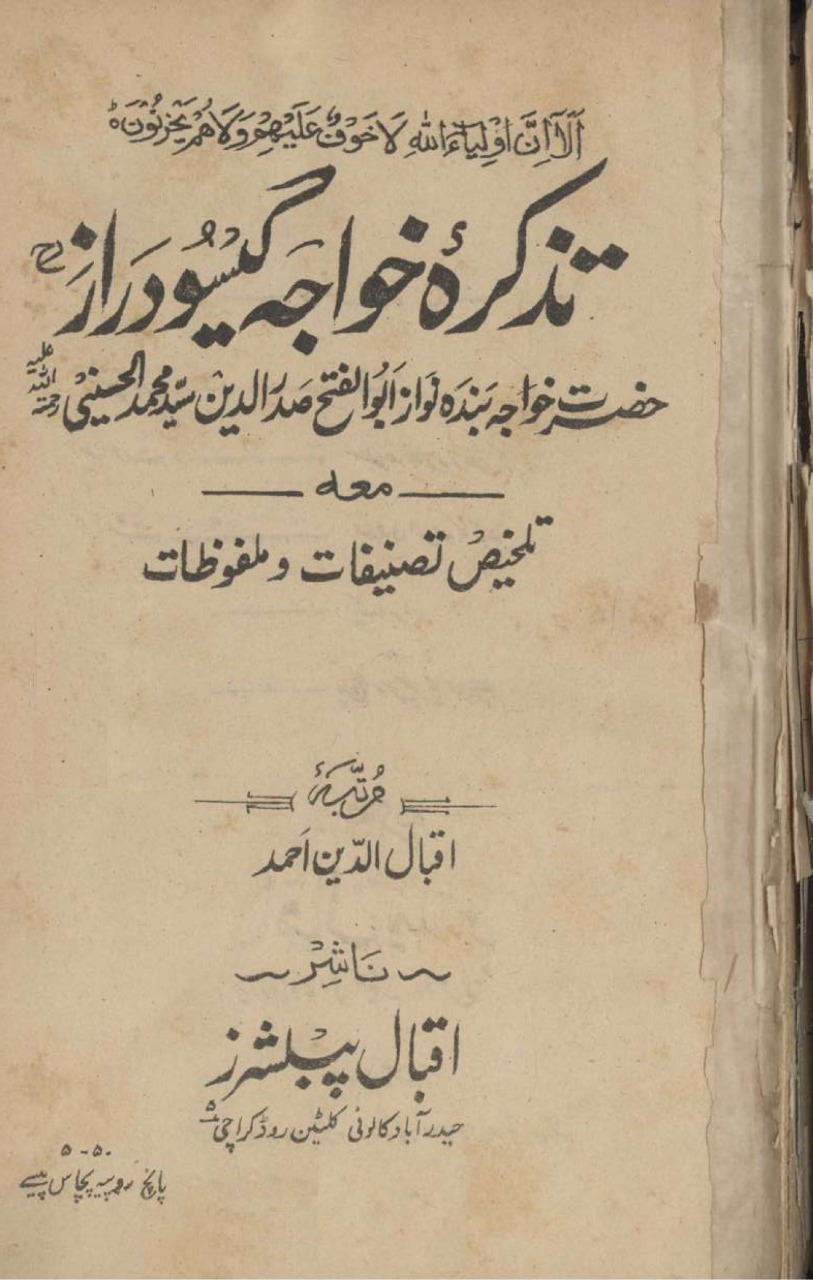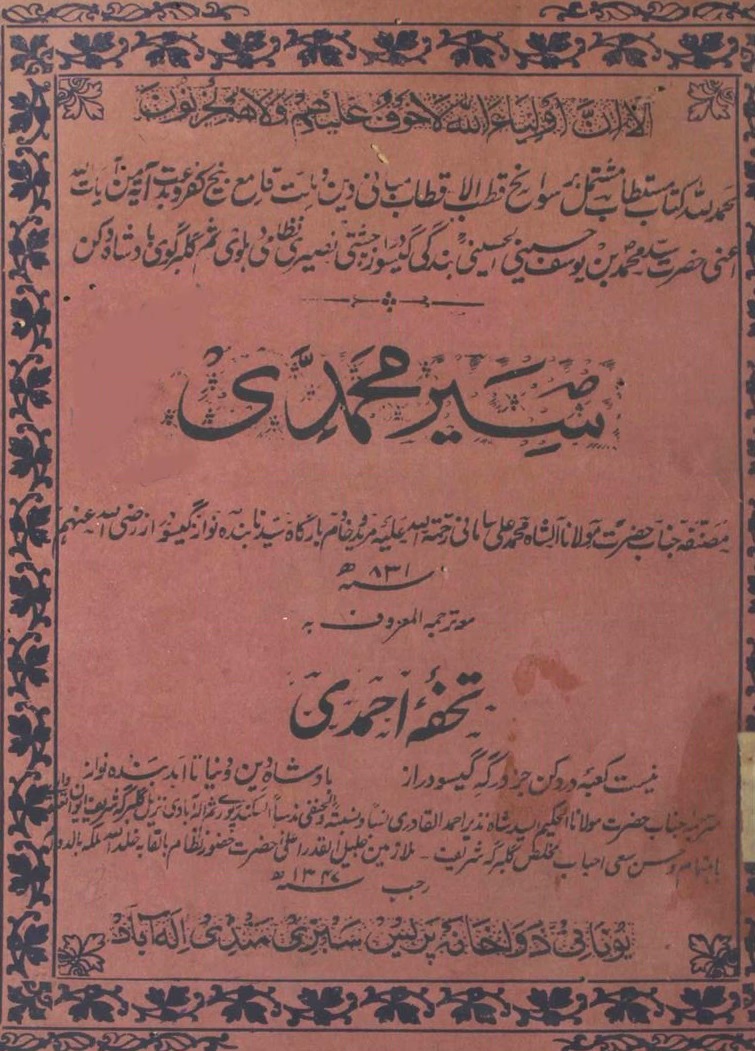Gulbarga: Sarkar Badshah-e-Deccan Shahenshah-e-Gulbarga Qutbul-Aqtab Abul-Fath Sadr-ud-Deen Sultan-ul-Qalam Syed Mohammed bin Yusuf Hussaini Chishti (rahmatullahi alaihi)
Hazrat Khwaja Banda Nawaz was born on 7 August, 1321ce/4 Rajab, 721h in Delhi.
– He was a Murid (disciple), and later Khalifa (successor) of the noted Sufi saint of Delhi, Hazrat Syed Nasiruddin Mahmud Chiragh Hassani Chisthi Dehlavi d.1357ce/757h (Murid, and later Khalifa of the renowned Sufi master Hazrat Syed Mohammed Nizamuddin Auliya of Delhi d.1325ce/725h).
– He had his formal education in Islamic and Quranic studies, Arabic grammar, prophetic traditions, theology, law and jurisprudence, philosophy, and Sufism under the watchful eye of the Chiragh of Delhi.
– He had the privilege of being the very first ever regular Urdu Poet of Naat-e-Shareef.
– He authored about 105 books in Arabic, Urdu and Persian, of which 40 have been published.
– His Magnum Opus, ((Tafsirul-Multaqat)), in the Arabic language was published a couple of years back by Dairatul-Maarif, Osmania University, Hyderabad.
– He passed away on 10 November, 1422ce/16 Zul-Qa’dah, 825h in Gulbarga at the age of 101 years.
– People from various walks of life, irrespective of caste and creed, assemble in Gulbarga to celebrate his Urs (death anniversary), which takes place on the 15, 16 and 17th day of Zul-Qa’dah of the Hijri calendar at the famous Hazrat Khwaja Banda Nawaz Dargah in Gulbarga every year, during which academic research papers and articles related to his life, teachings, and efforts are presented and deliberated by leading scholars of the country and abroad.
– His Dargah Library stocks as many as 10,000 books in Arabic, Urdu, and Persia on eclectic subjects ranging from history to literature.
– Khwaja Banda Nawaz University [www.kbn.university] was established in Gulbarga last year. It manages about twenty colleges, including the colleges currently operating under Khwaja Banda Nawaz Educational Society (established in 1958) [www.kedus.in], such as Khwaja Banda Nawaz College of Engineering (established in 1980) and Khwaja Banda Nawaz Institute of Medical Sciences (established in 2000) [www.kbnims.com].
References for his Detailed Biography:
1. ((Siyar Mohammedi)) by Shah Mohammed Ali Samnani [Murid and Khadim of Hazrat Khwaja Banda Nawaz Gesu Daraz] (Published in 1928 by Unani Dawakhana Press, Allahabad)
2. ((Tazkira Khwaja Gesu Daraz)) by Iqbaluddin Ahmed (Published in 15th Zul-Qa’dah, 1385h/1966 A.D. on the occasion of his 560th Urs by Iqbal Publishers, Hyderabad Colony, Karachi).
3. ((Sirat-e-Banda Nawaz Wasila-e-Kainat)) by Syed Ghulam Mustafa Qadri Chishti (Published in 1968 by Ghalib Academy, New Delhi).
4. ((Madah Khwaja-e-Deccan)) by Syed Mubarizuddin Rifat (Published in 1974 by National Book Depot, Hyderabad).
5. ((Sirat-e-Pak Hazrat Khwaja Syed Mohammed Gesu Daraz alias Banda Nawaz)) by Shabbir Hussain Chishti Nizami (Published in 2002 by Azim and Sons Publishers, Lahore).
6. ((Hazrat Khwaja Banda Nawaz – Hayat wa Afkar)) by Dr. Wahab Andaleeb (Published a few months ago in 2019).
((Tafsirul-Multaqat)) of Hazrat Khwaja Banda Nawaz Gesu Daraz (qaddasuAllahu sirrahu):
– He has mentioned in it countless pearls of wisdom and knowledge.
– He first mentions Ayat of the Quran, then he mentions the speech of Imam Abdul-Karim bin Havazin Qushairi (d.465h) from his book ((Lataiful-Isharat)) under the title “Lataif,” then, he mentions the statements of Imam Mohammed bin Hussain Sullami (d.412) from his book “Haqaiqut-Tafsir)) under the title “Haqaiq,” then he mentions his precious views and opinions which are the result of his vast knowledge and research under the title “Multaqat”, all of these in pure and pristine Arabic language and grammar free flowing like the water of a pure river.
– He quotes numerous verses of poetry in the Arabic and Persian languages to convey his view and explains his position, and translates from of the difficult Arabic words into the Persian language for the ease of the reader.

